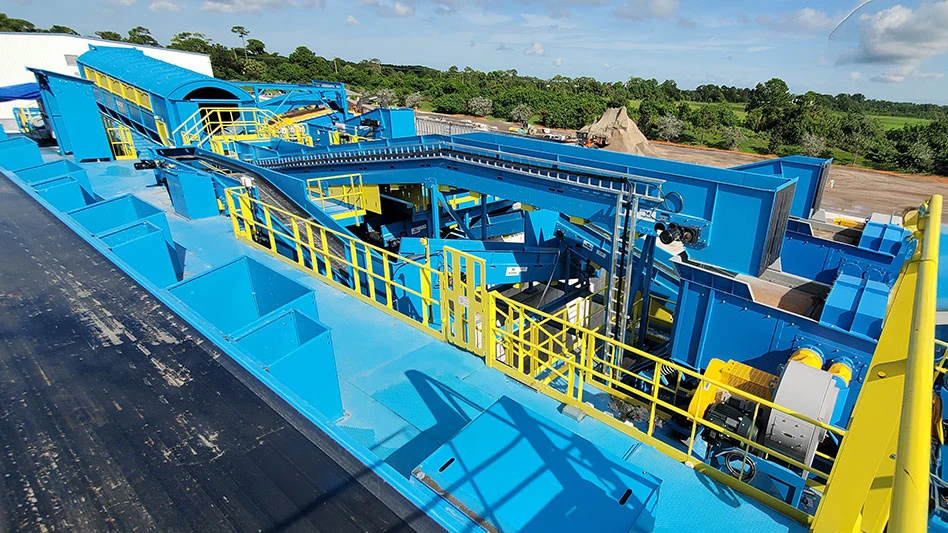The legislation that created Superfund was enacted more than 25 years ago to assist in the cleanup of abandoned sites throughout the United States contaminated by hazardous waste.
Initially, scrap recyclers were considered among those potentially responsible for funding cleanup costs, as spelled out in the original Superfund law, known as the Comprehensive Environmental Response, Compensation and Liability Act of 1980 (CERCLA).
Subsequent revisions, most notably the Superfund Recycling Equity Act of 1999 (SREA), signed into law that year by President Clinton, exempted scrap recyclers as long as they met a number of conditions.
THE BACK STORYCERCLA, commonly known as Superfund because of the trust fund it established to fund cleanups, was enacted to address abandoned industrial production and hazardous waste sites throughout the United States. Four classes of parties could be held liable under CERCLA, including the current owner or operator of a site; the owner or operator at the time of contamination with a hazardous substance; a person who transported a hazardous substance to the site; and a person who arranged for the disposal of a hazardous substance at the site.
In October of 1986, Congress approved the Superfund Amendments and Reauthorization Act (SARA). This amendment to CERCLA reflected the Environmental Protection Agency’s (EPA’s) experience in administering the Superfund program. SARA made several changes and additions to the program, including providing new enforcement authorities and settlement tools, increasing state involvement and increasing the Superfund trust fund from $1.6 billion to $8.5 billion.
The Small Business Liability Relief and Brownfield Revitalization Act of 2002 further amended CERCLA. Signed into law by President George W. Bush on Jan. 11, 2002, this law provided funds to assess and clean up brownfield sites, clarified CERCLA liability protections and provided funds to enhance state and tribal response programs.
Through the updated policy, the EPA established a priorities list as well as appropriate cleanup plans. Additionally, the EPA has the authority to conduct removal actions where immediate action needs to be taken; to enforce against potentially responsible parties; to ensure community involvement; to involve states; and to ensure long-term protectiveness, according to the EPA Web site at www.epa.gov/superfund/about.htm.
While scrap metal recyclers are largely exempted from Superfund liability, they have not been given a free pass. Danielle Waterfield, assistant counsel and director of government affairs for the Institute of Scrap Recycling Industries Inc. (ISRI), manages the association’s SREA program. She says that under SREA, recyclers still must demonstrate care and due diligence to ensure they are not held liable for any future problems at a particular site.
"The [scrap-related portion of the] law stipulates that reasonable care and inquiries to the status of a facility have been made," Waterfield says.
Nathan Hunt, an attorney with Thompson Hines’ Environmental Practices group based in Dayton, Ohio, agrees that scrap recyclers need to provide a certain level of due diligence to be exempted.
To assist in the process, ISRI has introduced a "Reasonable Care Compliance Program," which should help recyclers avoid Superfund liability through their customers.
Through the Reasonable Care Compliance Program, ISRI has contracted with an environmental firm that does much of the legwork required by the law, including checking all state environmental records and detailed reports, including fire marshal reports, Waterfield adds.
ISRI’s contracted agent also sends follow-up inquiry letters to the appropriate environmental regulatory agency. These letters seek updated information on the particular company. The consumer also receives a questionnaire that is designed to gather additional compliance information, giving the scrap recycler a more detailed look at the company to which it is shipping material.
While the SREA Reasonable Care Compliance Program has been in place since 2003, ISRI made it available to all of its members as a part of its membership package this year. Since releasing the information, response has been very good, Waterfield says.
She says the reports on consumers are compiled every 24 months, which ensures that the information is as current as possible.
According to an EPA document dated August 2002 titled "Superfund Recycling Equity Act of 1999: Factors To Consider In A CERCLA Enforcement Case," Section 127(b) of CERCLA "provides that the liability exemption applies only to the recycling of certain materials: scrap paper, scrap plastic, scrap glass, scrap textiles, scrap rubber (other than whole tires), scrap metal and spent lead-acid, nickel-cadmium and other batteries, as well as minor amounts of material incident to or adhering to the scrap material as result of its normal and customary use prior to becoming scrap."
EPA’s use of the term "minor amounts" of non-recyclables as a partial determinant of whether a recycler qualifies for an exemption could be a potential problem for recyclers.
DEFINING MINOR AMOUNTSWhile SREA’s passage did lift the concept of scrap being deemed as waste, recyclers still need to take "reasonable care" in determining whether a consumer is in compliance with environmental law. The EPA’s reasonable-care criteria include, but are not limited to, the value of the recycling transaction; the ability of the recycler to detect the nature of the consuming facility’s handling, processing, reclamation or other management activities associated with the recyclable material; and the result of inquiries made to environmental agencies regarding the consuming facility’s past and current environmental compliance.
To ensure that a scrap recycling company will not be found liable for Superfund cleanup, ISRI says the recycler needs to perform due diligence and demonstrate that it has contacted the consuming operation and has asked the company whether it was in compliance with environmental laws.
While many recyclable materials are included under the SREA exception, shipping containers with traces of hazardous substances and any material "that contained polychlorinated biphenyls at a concentration in excess of 50 parts per million or any new standard promulgated pursuant to applicable federal laws" are exceptions, according to Section 127(b) of the act.
Additionally, the EPA has called on its regional offices to focus on the following criteria when it looks at providing exemptions for recyclers:
•
How the material at the site was actually recycled;•
How and when any hazardous substances included in the recycled material came to be associated with it;•
The size of the shipping containers and the nature of any hazardous substances in the containers that hold or constitute the recycled material;•
The nature of the transaction, including the prices paid;•
The extent of contamination at the site and the impact of the recycled materials at the site based on their relative toxicity, mobility and persistence; and•
Compliance by the recycler and the consumer with applicable standards regarding the storage, transportation and management or other activities associated with the recyclable material.While, for the most part, recyclers are exempt from Superfund obligations, the federal EPA does place the burden of proof on these companies and their ability to establish their eligibility for an exemption through SREA by performing due diligence on their consumers.
The author is Internet and senior editor of Recycling Today and can be contacted at dsandoval@gie.net.

Explore the July 2008 Issue
Check out more from this issue and find your next story to read.
Latest from Recycling Today
- Greenwave raises revenue but loses money in Q2 2025
- Recycled steel prices hold steady
- EY says India’s need for scrap imports will continue
- Coming full circle
- Amcor, DCM introduce fertilizer packaging with 35 percent recycled content
- Comstock Metals gets closer to commissioning commercial-scale solar panel recycling facility
- Washington selects Circular Action Alliance as PRO
- Smurfit Westrock expands in Latin America





